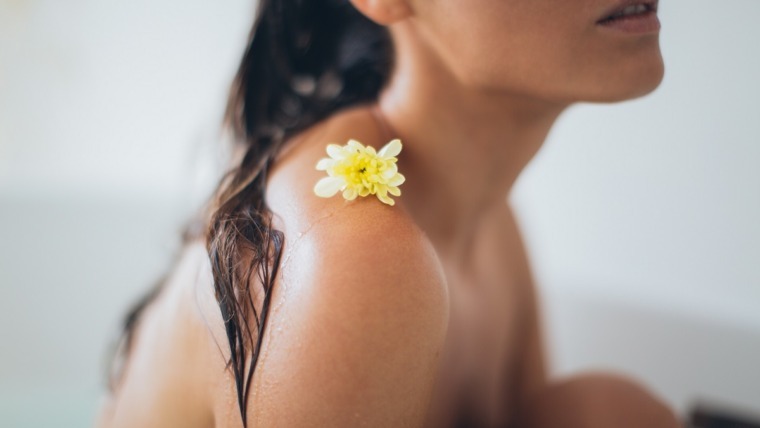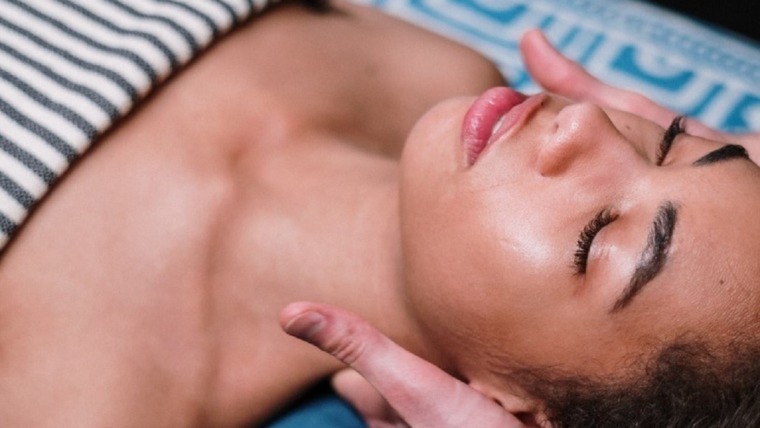
Maskne
How To Prevent Acne From Face Masks
Written by Kristy Iervasi
You may think I just made up the word maskne, and as much as I would love to take credit for it, I cannot, as it’s actually a medical term according to Loma Linda University Health. According to Potts, D (2020) maskne is an actual skin condition brought on by wearing facial personal protective equipment, such as masks. According to Potts “Masks impose heat, friction and occlusion on the skin and when combined with a moist environment from breathing, talking or sweating, this is a recipe for breakouts,”.
Now I don’t want you to think there is something wrong with you because you’re getting skin issues from the masks e.g. you think you are experiencing hormonal dysfunction or something. According to Rosemary Nixon, a dermatologist from the Australasian College of Dermatologists (ACD) people who are prone to acne or rosacea will likely see their condition deteriorate, but even those who don't normally have breakouts will likely get "a bit pimply". This is due to the sebum (oil) secretion on the face, it is increased when the temperature rises, so when your breath is trapped under a mask it gets hot and humid and is a recipe for skin disaster!
Face masks can cause the following skin conditions:
- Allergic contact dermatitis – Some masks can contain a chemical that may cause an allergic reaction.
- Rosacea – Classically worsened by heat and stress, mask-wearing can cause or increase flare-ups.
- Seborrheic dermatitis – this causes scaly plaques, inflamed skin and stubborn dandruff.
- Folliculitis – This is when yeast or bacteria infect hair follicles… um ouch!
How To Prevent It
Here are some tips on how to reduce/prevent these uncomfortable skin conditions from occurring while wearing masks.
Before Putting On The Mask
- Wash your face first: Use a cleanser that agrees with your skin and rinse with lukewarm water.
- Apply a moisturiser: keeping your skin hydrated is important, it will also be like a barrier between your face and your mask which can reduce friction. Pop it on after washing your face, along with before and after wearing a mask.
- Avoid wearing makeup: wearing makeup under a mask can cause clogged pores which exacerbate breakouts.
- Wash your mask: If you’re wearing a cotton mask, wash it after each use as it holds onto dirt and oil which means bacteria being exposed from your nose and mouth.
- Find a mask that fits you properly: make sure it’s not too tight but not too loose, if it slides around your face it can cause friction.
- Don't forget to take mask breaks where possible: As a guideline, the Academy of Dermatology recommends a 15-minute break every four hours.
- Choose one with cotton material on the inside: It is more breathable and synthetics are more likely to irritate your skin.
Other Helpful Tips:
- Consider using a toner to dry out your skin
- Put two layers of gauze inside the mask if irritation occurs
- Don’t reuse surgical masks, the surgical masks are not meant to be reused
- Don’t forget your lips! Keep them moisturised with your fav lip balm. If you can find it, pretty sure I lose mine 105 times a day
If you have a skin condition like rosacea or eczema, definitely keep up the treatment plan that your dermatologist recommends for you.
Also, don’t forget you aren’t alone in this, we are all feeling the pain of extra skin issues at the moment. Ensure you are drinking lots of water, eating well and not consuming too much junk food which can affect your skin health (and health overall).
References
2. https://www.abc.net.au/news/health/2020-07-25/how-to-prevent-face-acne-and-skin-irritation-from-masks/12490464
How To Prevent Acne From Face Masks How To Prevent Acne From Face Masks How To Prevent Acne From Face Masks How To Prevent Acne From Face Masks



